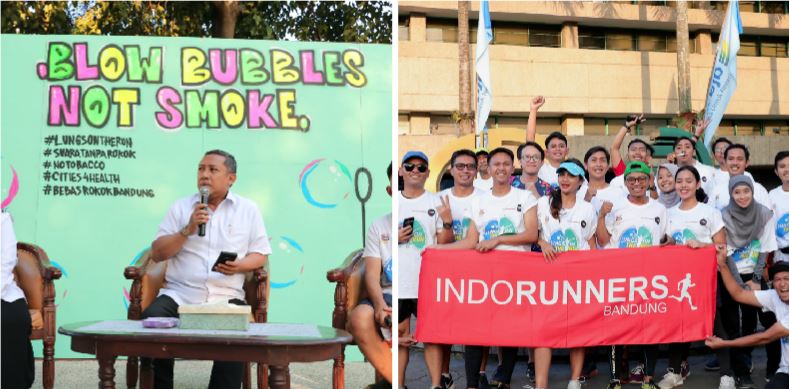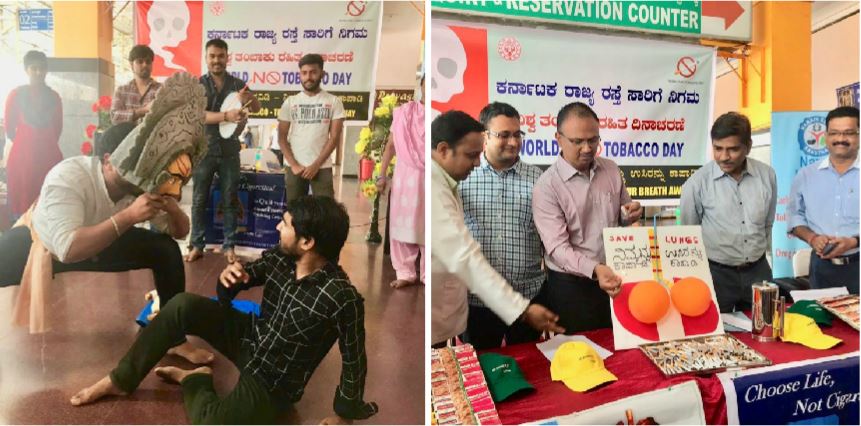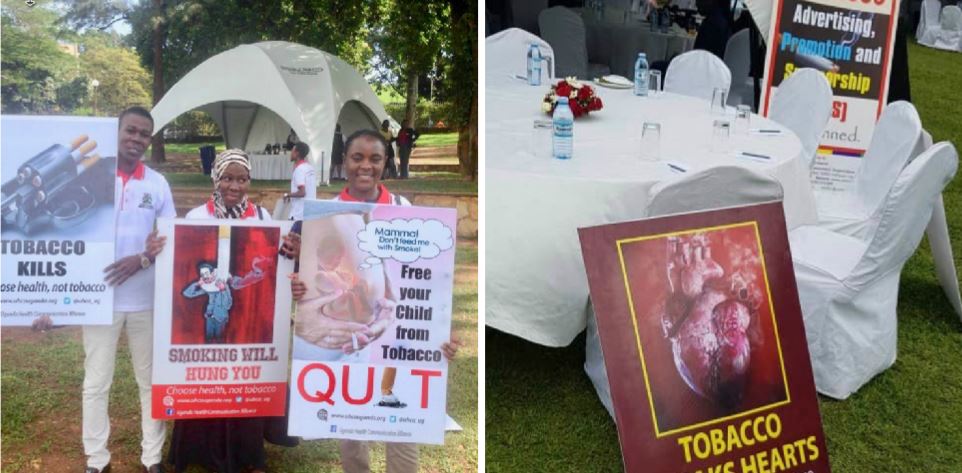The world’s leading preventable killer—tobacco—comes center stage every year on World No Tobacco Day, May 31, bringing attention to the 7 million tobacco-related annual deaths caused by tobacco use and aiming to boost tobacco control policies and efforts.
Here’s what happened to mark the day in five cities working with the Partnership for Healthy Cities to become completely smoke-free.
1. Bandung, Indonesia
World No Tobacco Day activities in Bandung this year included a “Blow Bubbles Not Smoke” event in a public park, where citizens joined Vice Mayor Kang Yana Mulyana to paint a mural and blow soap bubbles.
Bandung was also one of five Indonesian cities participating in the country’s first-ever World No Tobacco Day virtual run. More than 600 people logged 50 million steps as part of “Lungs on the Run,” a campaign to encourage healthy, smoke-free living. The accompanying social media campaign included an exchange of personal stories and useful tips for quitting.

2. Bengaluru, India
World No Tobacco Day this year in Bengaluru, India, was marked jointly by the city and the surrounding state of Karnataka, which also bans smoking in public places. During the week leading up to May 31, street performers at bus stations throughout Bengaluru acted out scenes depicting the effects of smoking and second-hand smoke, and advocates chatted with passersby about lung cancer and other diseases.
The Partnership for Healthy Cities supports enforcement of Bengaluru’s smoke-free law along with media campaigns on television, radio, billboards, auto rickshaws and social media showing the risks to non-smokers of tobacco smoke in the home, at work, in movies theaters and beyond.

3. Kathmandu, Nepal
Kathmandu is another of the Partnership’s smoke-free cities working to enforce a national law locally.
In the lead-up to World No Tobacco this year, activities included a rally featuring a Partnership for Healthy Cities banner (below, left).
Also, 11 public hospitals committed to banning tobacco use and sale on their own premises and sent throngs of medical professionals into the street for a “people-police partnership” march in support of enforcement campaigns.

4. Kampala, Uganda
Kampala’s participation in national World No Tobacco Day activities featured a two-kilometer procession through the downtown that ended at a symposium, where speakers criticized the tobacco industry for aggressive tactics and vowed their support for strict enforcement of smoke-free laws.
The Partnership’s technical lead in Kampala, Acting Director in charge of Public Health and Environment Dr. Daniel Okello, delivered a tough reminder that Kampala is a smoke-free city and that smoking anywhere in public is prohibited by law.

5. Kigali, Rwanda
At the urging of the city of Kigali, Rwanda’s Ministry of Health issued a formal memo reminding the public about the country’s smoke-free law. Smoking in public places is prohibited by law throughout the East African nation, but restaurants and hotels in the capital have done a particularly poor job of getting their customers to comply.
Later, Ministry officials answered questions from the public at an outdoor World No Tobacco Day rally (pictured below) that also featured musical performances and information projected on a giant screen about what tobacco use does to the body.
About the Partnership for Healthy Cities:
The Partnership for Healthy Cities is a prestigious global network of cities committed to saving lives by preventing noncommunicable diseases (NCDs) and injuries. Supported by Bloomberg Philanthropies in partnership with WHO, as well as Vital Strategies, this initiative enables cities around the world to deliver a high-impact policy or programmatic intervention to reduce NCD risk factors in their communities. For more information, visit: https://partnershipforhealthycities.bloomberg.org/